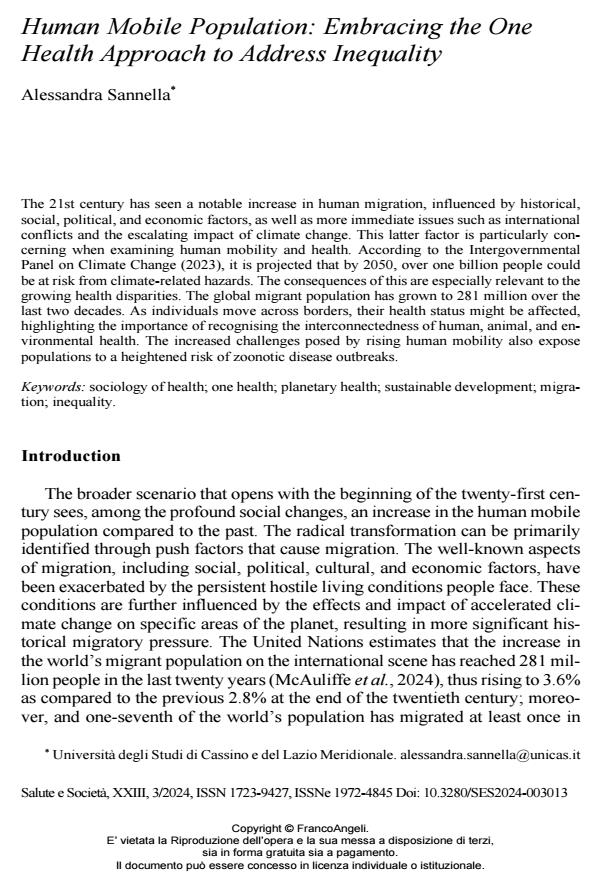Human Mobile Population: Embracing the One Health Approach to Address Inequality
Titolo Rivista SALUTE E SOCIETÀ
Autori/Curatori Alessandra Sannella
Anno di pubblicazione 2024 Fascicolo 2024/3
Lingua Inglese Numero pagine 12 P. 181-192 Dimensione file 239 KB
DOI 10.3280/SES2024-003013
Il DOI è il codice a barre della proprietà intellettuale: per saperne di più
clicca qui
Qui sotto puoi vedere in anteprima la prima pagina di questo articolo.
Se questo articolo ti interessa, lo puoi acquistare (e scaricare in formato pdf) seguendo le facili indicazioni per acquistare il download credit. Acquista Download Credits per scaricare questo Articolo in formato PDF

FrancoAngeli è membro della Publishers International Linking Association, Inc (PILA), associazione indipendente e non profit per facilitare (attraverso i servizi tecnologici implementati da CrossRef.org) l’accesso degli studiosi ai contenuti digitali nelle pubblicazioni professionali e scientifiche.
The 21st century has seen a notable increase in human migration, influenced by historical, social, political, and economic factors, as well as more immediate issues such as international conflicts and the escalating impact of climate change. This latter factor is particularly concerning when examining human mobility and health. According to the Intergovernmental Panel on Climate Change (2023), it is projected that by 2050, over one billion people could be at risk from climate-related hazards. The consequences of this are especially relevant to the growing health disparities. The global migrant population has grown to 281 million over the last two decades. As individuals move across borders, their health status might be affected, highlighting the importance of recognising the interconnectedness of human, animal, and environmental health. The increased challenges posed by rising human mobility also expose populations to a heightened risk of zoonotic disease outbreaks.
Parole chiave:sociology of health; one health; planetary health; sustainable development; migration; inequality.
Alessandra Sannella, Human Mobile Population: Embracing the One Health Approach to Address Inequality in "SALUTE E SOCIETÀ" 3/2024, pp 181-192, DOI: 10.3280/SES2024-003013